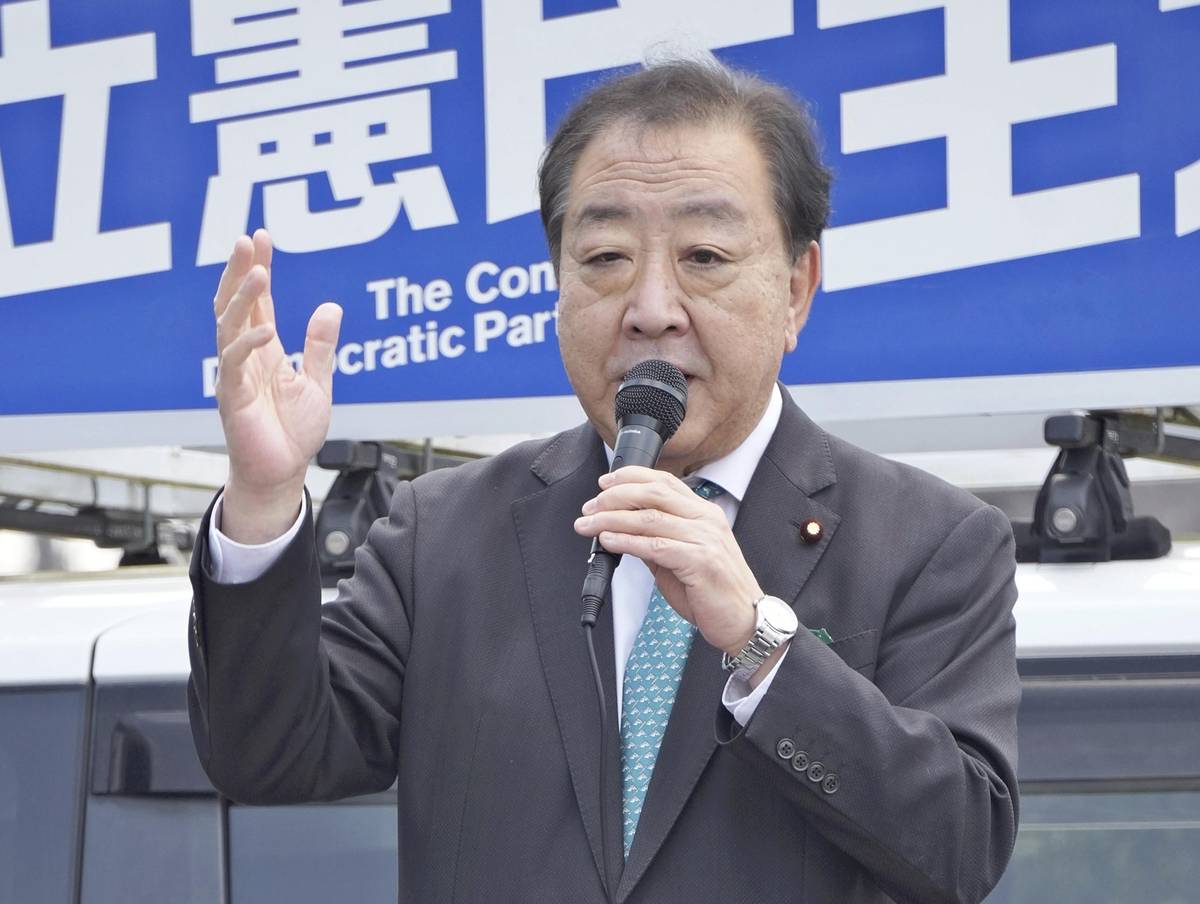Japan Opposition Leader Sees Some Success Over Half Year, But Lack of Signature Policies Drags Down Approval Rating

Yoshihiko Noda, president of the Constitutional Democratic Party of Japan, makes a street speech in Mito on Sunday.
21:00 JST, March 24, 2025
Yoshihiko Noda, president of the Constitutional Democratic Party of Japan, assumed the leadership of the largest opposition party six months ago on Sunday.
Noda has had some achievements in the Diet over that period, including forcing the government to change certain policies, but the CDPJ’s approval rating remains sluggish.
“We intend to create a charged political situation in the House of Councillors as well,” Noda said during a street speech in Mito on Sunday, expressing his determination for his party to be victorious in the upper house election this summer.
Seeking to become prime minister again, Noda successfully ran in the CDPJ presidential election last September. The following month, his party won 148 seats in the House of Representatives election, up 50 from its pre-election figure, while the ruling parties failed to secure a majority.
During the extraordinary Diet session held late last year, the Noda-led CDPJ took advantage of the ruling bloc’s minority in the lower house. It successfully added ¥100 billion to this fiscal year’s supplementary budget for the restoration and reconstruction of the disaster-hit Noto Peninsula in Ishikawa Prefecture — a move pushed for by the main opposition party.
The CDPJ also took the initiative in submitting a bill to completely abolish so-called policy activity expenses, forcing the ruling bloc to accept the bill proposed by seven opposition parties without modifications.
During the current Diet session, the CDPJ also strongly called for a freeze on the government’s plan to raise the ceiling on out-of-pocket expenses for high-cost medical care. As a result, Prime Minister Shigeru Ishiba ended up putting the plan on hold.
However, these achievements did not necessarily boost support for the CDPJ. In a nationwide survey conducted by The Yomiuri Shimbun earlier this month, the approval rating for the party stood at 6%, far behind the Democratic Party for the People.
The CDPJ does not have high-profile policies, unlike the Japan Innovation Party and the DPFP. The JIP’s proposed measure to make education free and the DPFP’s call for a review of the so-called annual income barrier drew public attention in their policy discussions with the ruling bloc.
Under these circumstances, frustration has grown within the CDPJ. “If the situation remains unchanged, we can’t compete in the upper house election,” a mid-ranking CDPJ member said.
Top Articles in Politics
-

Japan PM Takaichi’s Cabinet Resigns en Masse
-

Sanae Takaichi Elected Prime Minister of Japan; Keeps All Cabinet Appointees from Previous Term
-

Japan’s Govt to Submit Road Map for Growth Strategy in March, PM Takaichi to Announce in Upcoming Policy Speech
-

LDP Wins Historic Landslide Victory
-

LDP Wins Landslide Victory, Secures Single-party Majority; Ruling Coalition with JIP Poised to Secure Over 300 seats (UPDATE 1)
JN ACCESS RANKING
-

Japan PM Takaichi’s Cabinet Resigns en Masse
-

Japan Institute to Use Domestic Commercial Optical Lattice Clock to Set Japan Standard Time
-

Israeli Ambassador to Japan Speaks about Japan’s Role in the Reconstruction of Gaza
-

Man Infected with Measles Reportedly Dined at Restaurant in Tokyo Station
-

Videos Plagiarized, Reposted with False Subtitles Claiming ‘Ryukyu Belongs to China’; Anti-China False Information Also Posted in Japan






















